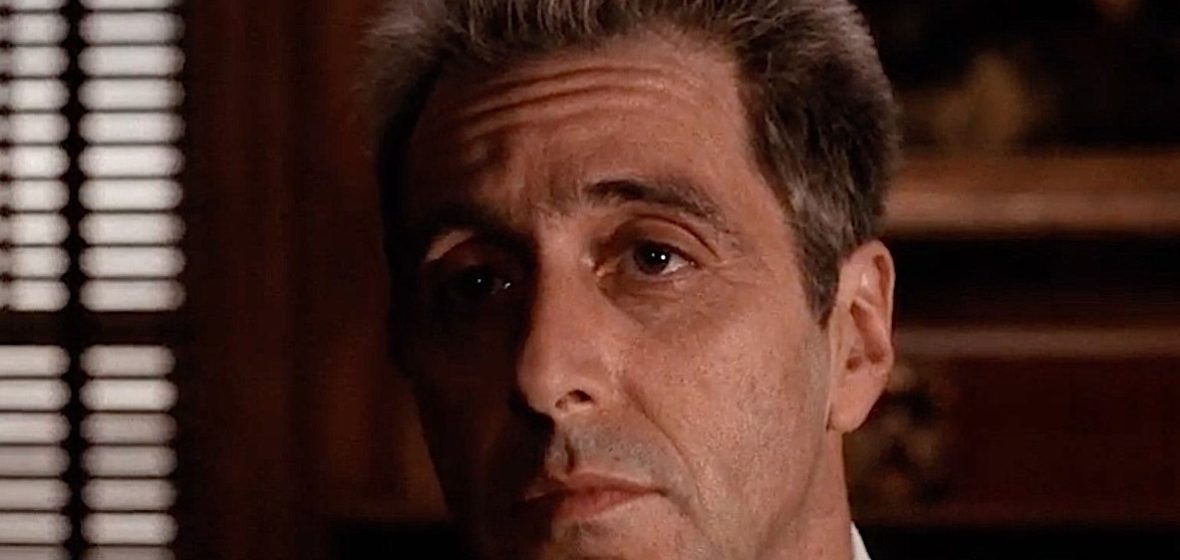Rating: ****
Do not be puzzled by the needlessly cryptic and spoilerific title: The Godfather Coda: The Death of Michael Corleone is actually a re-edit of Francis Ford Coppola’s The Godfather Part III, trimming some scenes, re-ordering others and ultimately removing 20 minutes from the original cut.
Unlike Coppola’s redux of Apocalypse Now, which added 50 minutes of extra scenes and a whole new useless sequence that broke the pitch-perfect pacing of the original, Coda is a tightly knitted piece of work that manages to recontextualise its place in the entire saga.
Coppola had always been adamant the real story ended with The Godfather Part II and the third instalment was just to be seen as an epilogue. Possibly forced by the marketing department to include a number in the title, it’s hard to believe the new title would convince the 1990 audiences to appreciate it – but it helps to set it apart from the other films.
I confess to have never been part of the hatred for Part III. It was a perfectly serviceable conclusion. It’s a film about reluctancy, with Michael Corleone (Al Pacino) constantly rejecting all the calls to action he comes across. Even when there’s a violent attempt to assassinate him, or when his nephew (Andy Garcia) and sister (Talia Shire) remind them of how much his presence is needed in the community, Michael, who never wanted to be part of the family business in the first place, reluctantly becomes his own father. Now finally freed from that shadow, he struggles to run away from his own fame.
The new edit does wonders to keep the pacing tight and enjoyable. Those who didn’t like it before probably won’t find more reasons to go back, but it’s undeniably more effective and enjoyable. What is surprising is not what he removed but what he left – considering all the controversy at the time of casting his daughter Sofia as Michael’s daughter Mary. Her acting abilities, her arc and presence remain pretty much untouched: she’s not in it nearly as much as people remember, and is not as bad as many make her out to be.
In the end, this is a fantastic opportunity to revisit one of the most controversial films from the end of the last century. I found it to be refreshing and a validation of my thoughts of the original cut.
Others may still be disappointed with the lack of passionate pathos that drove the violence in the first two. It is also a film deep-seated in its own Italian roots, replacing the epic Shakespearean tragedy of the first two with a Southern-European melodramatic flare that is more soap opera than grand American Hollywood. And that touches back to the theme of a filmmaker giving the audience what they thought they wanted and not what they needed to see. If anything Coda reminds us that the third film was here to teach us a lesson, and it does with enough pomp and circumstance to be worth another price of admission.




